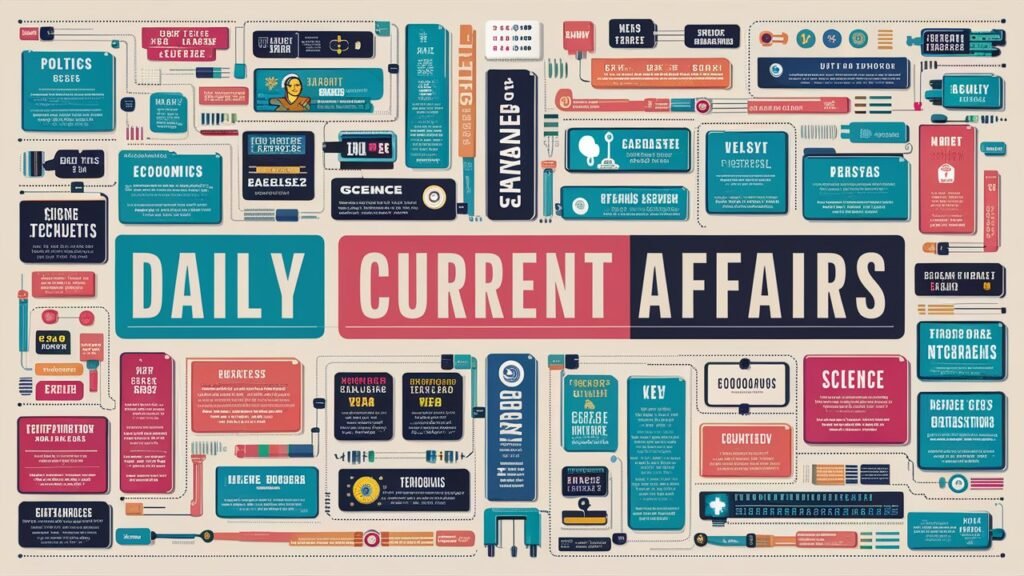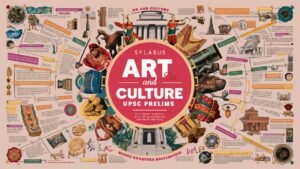
In today’s fast-paced world, staying up-to-date with the latest news and events is crucial. Whether you’re a student, a professional, or simply someone who wants to be an informed global citizen, keeping track of daily current affairs is vital. However, with the overwhelming amount of information available, it can be challenging to find reliable and comprehensive sources. That’s why we’ve curated a list of some of the best resources to help improve your GK and current affairs, ensuring you never miss out on the latest happenings.
Newspapers: The Traditional Powerhouses
Traditional print newspapers have long been a go-to source for staying informed about current affairs. Leading national and international publications like The New York Times, The Wall Street Journal, The Economist, and The Hindu offer in-depth coverage of global events, politics, business, and more. While some may argue that print media is becoming obsolete, these reputable sources continue to provide well-researched and fact-checked articles, offering a solid foundation for understanding the world around us.
Online News Portals: Convenience at Your Fingertips
In the digital age, online news portals have emerged as a convenient and accessible way to stay updated on current affairs. Websites like CNN, BBC News, Reuters, and Al Jazeera offer round-the-clock coverage of breaking news, analysis, and opinion pieces. Many of these platforms also offer mobile apps, allowing you to access the latest information on the go.
News Aggregators: One-Stop Shops for Current Affairs
If you prefer to have a curated selection of news from various sources, news aggregators might be the way to go. Sites like Google News, Apple News, and Flipboard gather articles from reputable publications, allowing you to access a diverse range of perspectives and topics in one place. These platforms often offer personalization options, enabling you to tailor your news feed based on your interests and preferences.
Social Media: A Valuable Supplementary Source
While social media platforms should not be your primary source for current affairs, they can serve as a valuable supplement. Twitter, in particular, has become a hub for breaking news, with journalists, politicians, and influencers sharing updates in real-time. By following reputable accounts and using relevant hashtags, you can stay informed about the latest developments as they unfold. However, it’s essential to approach social media news with a critical eye and verify information from official sources.
Specialized Blogs and Websites: Niche Expertise
For those interested in specific topics or industries, specialized blogs and websites can provide in-depth coverage and expert analysis. For instance, if you’re passionate about technology, sites like TechCrunch, Wired, and The Verge offer comprehensive coverage of the latest innovations, trends, and advancements in the tech world. Similarly, if you’re interested in finance, publications like The Wall Street Journal’s MarketWatch and Bloomberg offer extensive coverage of financial markets, investments, and economic news.
Podcasts and Audio Sources: Learning on the Go
Podcasts have become an increasingly popular way to consume news and current affairs. With their convenience and portability, you can listen to podcasts while commuting, exercising, or even doing chores around the house. Popular podcasts like “The Daily” from The New York Times, “Up First” from NPR, and “The Economist Radio” offer concise and insightful summaries of the day’s top stories.
Television News: Visual Storytelling
While many argue that television news has become more sensationalized, reputable news channels like BBC World News, CNN, and Al Jazeera can still provide valuable visual coverage of current affairs. These channels offer live reporting from around the globe, as well as in-depth analysis and expert commentary.
Comparison of Popular Current Affairs Resources
To help you make an informed decision, here’s a comparison of some popular current affairs resources:
| Resource | Strengths | Weaknesses |
|---|---|---|
| Newspapers (e.g., The New York Times, The Economist) | In-depth reporting, well-researched articles, diverse coverage | Limited to print format, may not be as timely as online sources |
| Online News Portals (e.g., CNN, BBC News) | Real-time updates, multimedia content, mobile accessibility | Potential for sensationalism, information overload |
| News Aggregators (e.g., Google News, Apple News) | Curated selection from various sources, personalization options | Limited context and depth, reliance on algorithms |
| Social Media (e.g., Twitter) | Breaking news in real-time, diverse perspectives | Unverified information, potential for misinformation |
| Specialized Blogs and Websites | Niche expertise, in-depth analysis | Limited scope, potential biases |
| Podcasts and Audio Sources | Convenience, portability, concise summaries | Limited visual aids, potential for missing details |
| Television News (e.g., BBC World News, CNN) | Live reporting, visual storytelling | Sensationalism, limited depth in coverage |
Remember, the best approach is often to use a combination of these resources to gain a well-rounded understanding of current affairs. By cross-referencing information from multiple reliable sources, you can ensure you’re getting accurate and comprehensive coverage.
Read Also:
- What is the full form of “LOL” in General Knowledge (GK)?
- Top 10 General Knowledge (GK) Websites for Students
Developing a Routine for Staying Informed
Staying informed about current affairs is not a one-time endeavor; it requires consistent effort and a well-established routine. Here are some tips to help you develop a habit of staying up-to-date:
- Set aside dedicated time: Whether it’s first thing in the morning, during your commute, or after work, allocate a specific time each day to consume news and current affairs content.
- Create a curated news feed: Utilize news aggregators or RSS readers to create a personalized news feed that includes sources you trust and topics you’re interested in.
- Subscribe to newsletters: Many reputable news organizations offer daily or weekly newsletters that summarize the top stories, making it easier to stay informed without feeling overwhelmed.
- Engage in discussions: Participate in discussions with friends, colleagues, or online communities about current affairs. Exchanging perspectives can deepen your understanding and expose you to different viewpoints.
- Follow thought leaders and experts: Identify and follow influential individuals, journalists, and experts in your areas of interest on social media. Their insights and commentary can provide valuable context and analysis.
Read Also:
- 10 Effective Ways to Improve Your General Knowledge (GK)
- The Importance of Current Affairs in Competitive Exams
The Value of Being an Informed Global Citizen
Staying informed about current affairs is not only important for academic or professional success but also for being an engaged and responsible global citizen. By understanding the world around us, we can make more informed decisions, participate in meaningful discussions, and contribute positively to society.
Moreover, keeping up with current affairs can broaden our perspectives, challenge our assumptions, and expose us to diverse viewpoints. It can foster empathy, critical thinking, and a deeper appreciation for the complexities of global issues.
In today’s interconnected world, the decisions and actions of individuals, governments, and organizations can have far-reaching consequences. By staying informed, we can better navigate these challenges and make a positive impact on the world around us.
Conclusion
In the age of information overload, finding reliable and comprehensive sources for daily current affairs can be a daunting task. However, by leveraging the resources mentioned in this article, such as reputable newspapers, online news portals, news aggregators, social media, specialized blogs, podcasts, and television news, you can stay informed and develop a well-rounded understanding of the world.
Remember, the key is to use a combination of these resources, cross-reference information, and develop a consistent routine for consuming news and current affairs content. By doing so, you’ll not only stay informed but also cultivate a deeper appreciation for the complexities of global issues, foster critical thinking, and become a more engaged and responsible global citizen.
Read Also:
- Top 5 Mobile Apps for Staying Updated on Current Affairs
- [How to Critically Analyze News and Current Affairs](https://example.com/analyze-news

